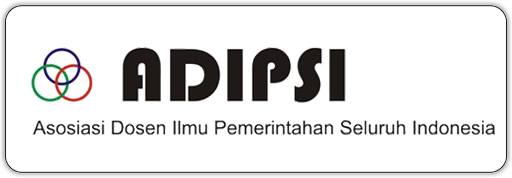Learning From Home Policy Evaluation in The Covid-19 Pandemic in Tanjungpinang City
DOI:
https://doi.org/10.31629/kemudi.v7i02.4763Keywords:
evaluation; policy; learning from homeAbstract
Against the Corona Virus Disease (covid-19), the government has formulated many policies that are expected to inhibit the spread of COVID-19. In the education sector, the Ministry of Education and Culture issued Circular Letter Number 15 of 2020 concerning Guidelines for Organizing Learning from Home in the Emergency Period for the Spread of Covid-19. This policy has been implemented in every region in Indonesia. In its implementation, there are differences in the media and methods used. Being a smart city with good infrastructure and telecommunications conditions makes it easier for Tanjungpinang City to implement policies for implementing learning from home. Based on previous research conducted by Afhan, Putri and Winarti, it was found that the implementation of bold learning at SMP Negeri 3 Tanjungpinang during the COVID-19 pandemic in 2020 went according to instructions from the Ministry of Education and Culture and the Tanjungpinang City Education Office. At the same time, the implementation of the policy for organizing learning from home in Tanjungpinang City has not run as it should as stated in the Ministerial Circular. SD Negeri 15 Bukit Bestari, Tanjungpinang City, carries out learning from home only by doing LKS (Student Worksheets), without using e-learning media in the form of synchronous and asynchronous. Seeing the phenomenon of implementing different learning from home policies in Tanjungpinang, raises the question of how the impact of the policy of implementing learning from home during the COVID-19 pandemic in Tanjungpinang City will be? In analyzing policy, this research uses Dunn's perspective. Dunn suggests six indicators for policy, namely effectiveness, efficiency, assessment, equity, responsiveness and accuracy. The method used in this research is descriptive quantitative method. In this study, the total population was 46,964 people, the number of samples taken was 556 people using the Cluster Random Sampling Technique. This sample is used as respondents who come from the target group, namely parents/guardians of students in Tanjungpinang City from the elementary level to high school equivalent. Data presentation is done by making tables and graph analysis results. In addition to making tables and graphs, the research results are also narrated descriptively and analytically. From the results of the analysis above, it can be concluded that of the six indicators of policy evaluation for the implementation of learning from home, the indicators that get a fairly high score are indicators of effectiveness, accuracy and equity with the sub-indicator of justice. Meanwhile, indicators of efficiency, adequacy, responsiveness and equity with sub-indicators of equitable distribution of infrastructure are still relatively low
Downloads
References
Anderson, JA. (2010). Public Policymaking: An Introduction. Wadsworth: Cengage Learning
Peningkatan Teknologi di Kota Tanjungpinang di 3 Tahun Kepemimpinan Walikota Rahma (Internet). Apriyani, editor. 2021 (cited 2022 Feb 2). Available From: https://rri.co.id/tanjungpinang/daerah/1231516/peningkatan-teknologi-di-kota-tanjungpinang-di-3-tahun-kepemimpinan-walikota-rahma
Arikunto. (2006). Prosedur Penelitian Suatu Pendekatan Praktek. Jakarta : Rineka Cipta
Atrup, A., & Puspitarini, I. Y. D. (2021). Evaluation of Distance Learning-Learning From Home (PJJ-BDR) One Year During the COVID-19 Pandemic. Nusantara of Research : Jurnal Hasil-Hasil Penelitian Universitas Nusantara PGRI Kediri, 8(2), 76-85. https://doi.org/10.29407/nor.v8i2.16311
Dunn, WN. (2003).Pengantar Analisis Kebijakan Publik. Edisi Kedua, Yogyakarta: Gajah Mada University Press
Fahmi, MH. (2020). Komunikasi Synchronous Dan Asynchronous Dalam E-Learning Pada Masa Pandemic COVID-19 (Internet). JURNAL NOMOSLECA. 6(2);Hlm 146. Available From: https://jurnal.unmer.ac.id/index.php/n/article/view/4947/0
Nugroho, Riant. (2004). Kebijakan Publik Formulasi, Implementasi, and Evaluasi, Jakarta: Elek Media Kamputindo
Parsons, W. (2001). Public Policy: Pengantar Teori & Praktik Analisis Kebijakan. Jakarta: Kencana
Permatasari. (2020). Book Review: Kebijakan Publik (Teori, Analisis, Implementasi dan Evaluasi Kebijakan) (Internet). TheJournalish: Social and Government. 1(1); Hlm 34-8. Available From: http://thejournalish.com/ojs/index.php/thejournalish/article/view/7/5
Ramadianti AA. (2020). Evaluasi Kebijakan Dan Pembelajaran Masa BDR. Seminar Nasional Pendidikan Dasar Universiatas Pendidikan Indonesia Kampus Serang 1(1), pp.01-10
Republik Indonesia. Data Satuan Pendidikan Kota Tanjungpinang. Available From: https://referensi.data.kemdikbud.go.id/index11.php?kode=316100&level=2
Republik Indonesia, Undang-Undang nomor 20 Tahun 2003 tentang Sistem Pendidikan Nasional
Republik Indonesia. Surat Edaran Nomor 15 tahun 2020 Tentang Pedoman Penyelenggaraan Belajar dari Rumah dalam Masa Darurat Penyebaran COVID-19. 2020.
Silitonga, D. Evaluasi Implementasi Kebijakan Publik (Studi Kasus: Evaluasi Implementasi Kebijakan UN SD Di Kota Madya Jakarta Pusat). Esensi. 21(2)
Sudrajat, S. (2009). Dasar–Dasar Penelitian Ilmiah. Bandung: Pustaka Setia













